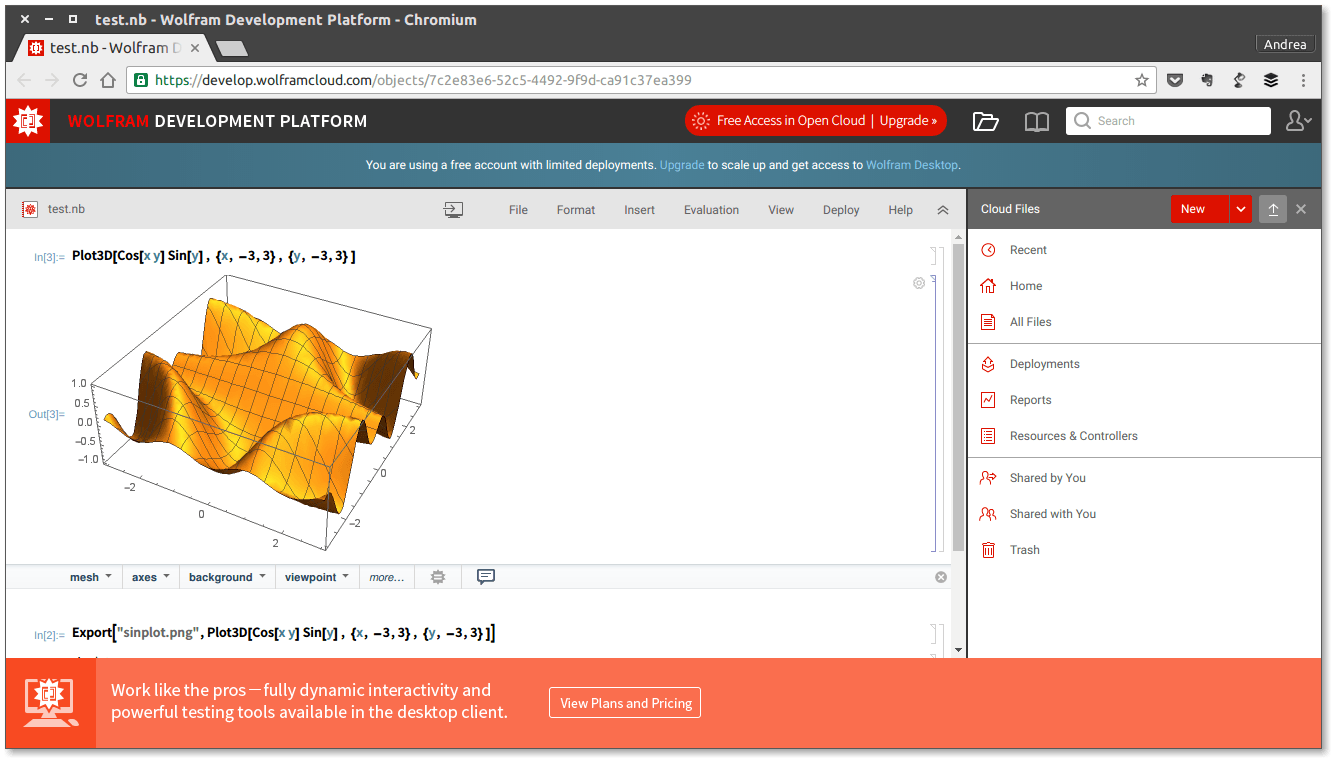My advice is to just use the pirated software and not rock the boat, just like Drunken Code Monkey, for example, mentioned.
This issue isn't something that you're likely to solve yourself. Instead, you're most likely going to spend large amount of time and energy on nothing and produce no results. The fact that your teacher just expects you to get cracked Mathematica is a proof enough that it's something completely normal and accepted by your society. Now, I'm not going to preach to you about your own personal ethics or if you should feel bad about the situation or not. Others have given more than enough options.
Instead, I'm going to talk a bit about how things like this are resolved in other places. I myself am from Serbia, a country that has been recently opening itself to the idea of actually giving money for software, so I've seen a bit of how negotiations between foreign software companies and locals work.
Basically, on one hand, the "manufacturer" of the software is suffering what some might consider a loss, since you, your fellow students and the institution aren't paying for licenses.
On the other hand, keep in mind that they also have a direct benefit from you: You're increasing the user-base of their software.
Mathematica isn't new and it's not going to disappear because you aren't paying for it. Instead, it has a chance to thrive: You're using Mathematica and not competitors. That means that you'll be most likely comfortable using Mathematica and not some other tool that take getting used to. At your future employer's place, you'll probably feel more comfortable again using Mathematica than alternatives.
This means that your area is a very interesting potential market for Wolfram. Sure, you're not paying now, but directly, that fact doesn't cost Wolfram anything. Keep in mind that software prices are not calculated by how much a license costs (because it costs pretty much nothing and the trend is to reduce physical costs as much as possible), instead they're calculated by how much potential customers want to pay for it. In some cases, the "normal" prices might be very far away from what you can normally afford.
The bottom line for software companies is that they want money, specifically, more money than they invested into the creation of software. Their user-base is a potential source of money. If the users are paying, that's great, if they're the non-paying type of users, you want to convert them eventually into paying type of users using various methods (student licenses come to mind, for example). If you spend resources to convert the non-paying users into non-users, you just wasted your own money for no profit at all.
The result is that, if Wolfram has a sufficiently large user base in China, and at the same time, the political situation in China changes to a point where Wolfram can start negotiations on licensing, the educational institutions could end up getting real licenses for their computers.
These licenses could be either payed individually, or through an agreement with your government for a form of collective licensing. They might even be "donated" as a show of "good will". There might be an agreement for a combination of donated and purchased licenses or a certain ratio of tolerated "non-purchased" and purchased licenses, eg. you'll buy 5 and we'll let you use up to 15 licenses or similar. There might be an agreement that a company could be allowed (or maybe even given government backing) to persecute or at least aggressively negotiate with commercial pirates in return for giving licenses to government and educational institutions. Sometimes, it's much easier to put pressure on a large for-profit company that has money to pay licenses than to put pressure on a smaller institution that in the end won't even be able to pay anything.
Possibilities are great, depending on what the company and relevant institutions manage to officially or unofficially negotiate. Do note that, if the political climate is ripe-enough, such negotiations can be very profitable for the company. After all, some money is much better than no money, as long as it doesn't take too much effort to obtain it.


